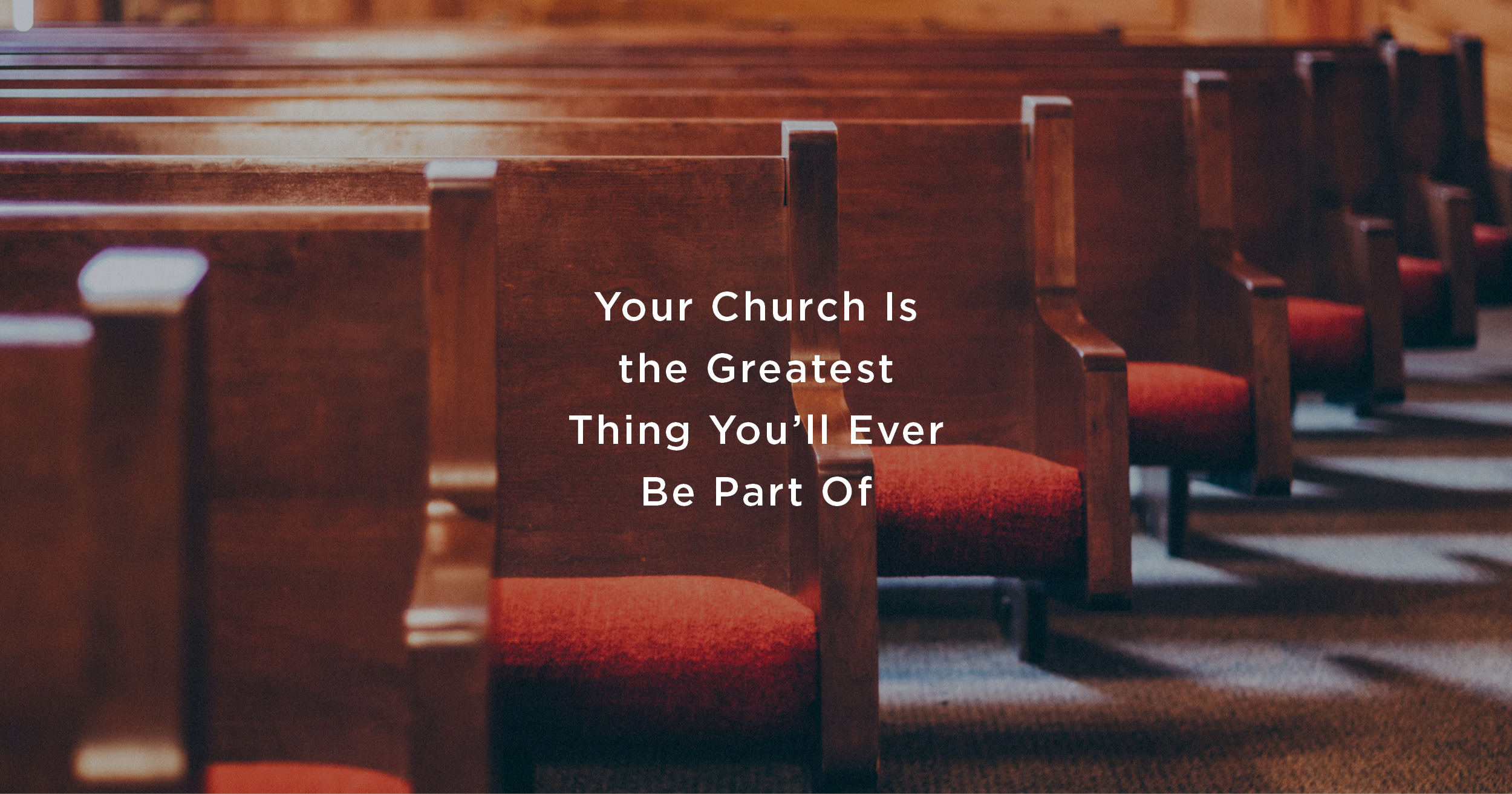
Here is a passage in which every single clause is joy-dynamite:
“You are no longer strangers and aliens…
but you are fellow citizens with the saints…
and members of the household of God…
built on the foundation of the apostles and prophets, Christ Jesus himself being the cornerstone…
In whom the whole structure, being joined together, grows into a holy temple in the Lord…
In him you also are being built together into a dwelling place for God by the Spirit.” (Ephesians 2:19-22)
Paul is, of course, describing the church. Not the church triumphant, numbering countless saints surrounding the throne in heaven. Not the church universal, numbering hundreds of millions spread around the world. Not the perfect church, that some of the more bombastic books and speakers describe. No—he is describing the local church, your local church.
Perhaps your church is made up of a few dozen, a few hundred, or a few thousand people, meeting in a school hall or an ancient building or a bespoke auditorium or under a tree. It doesn’t matter how numerous the people or how impressive the building—your church is God’s household, dwelled in by his Spirit, built upon his Son.
The greatest thing you’ll ever be part of is your church. The only eternal thing you’ll ever help build is your church. If you want to give your life for something worthwhile, if you want to serve the Lord Jesus, then you’ll be looking to love your church.
I know that. You probably know that. Most Christians do. And yet…
If you want to give your life for something worthwhile, if you want to serve the Lord Jesus, then you’ll be looking to love your church.
Sometimes, often, it’s hard to love your church. It’s sometimes hard to get away from a consumer mindset or a comfortable approach. It’s sometimes hard to remember that from God’s point of view, the most important and the most spectacular thing that happens in your neighborhood on a Sunday is this gathering of unspectacular, unglamorous, weak, struggling, saved sinners. It’s sometimes hard to see what difference we can make, if we’re not a pastor, or a preacher, or a musician.
But consider this:
“Jesus stopped at nothing to welcome us into the family. And he says to you and me: Go and do likewise. As we have been welcomed, so we must welcome. Our God, who made space for you and me, asks us to make space for everyone, so that they can hear and respond to his good news.” (Welcome by Jen Oshman, pages 15-16)
The church—your church—matters to Jesus. You need your church, and your church needs you.
As Barnabas Piper describes in his book Belong, “Part of God’s perfect strategy is offering hurting, tired, worn out, needy sinners like you and me a place to belong in … A place in which to encounter the profound, transformative, healing, restoring grace of Jesus Christ.”
Yes, loving your actual church is hard sometimes. Even often. It’s a place full of sinners like you and me! But as we look to Jesus and his love and design for his church, we can grow our own love for our own church. That’s why I’m excited about the new Love Your Church series, which includes Belong by Barnabas Piper, Welcome by Jen Oshman, and Gather by Tony Merida.
The series focuses on specific areas like these where we might find it hard to love our church, and helps to see why and how to love our churches practically. Each of the books is short, realistic, and has a free small group kit available so you can look at ways of loving your church together with your church family.
No matter how messy, awkward and challenging it can be, “God intends for us to live out our faith and to love one another in community. The good news of the gospel has not only changed our personal identity; it has changed our communal identity as well. And by God’s grace, our local gatherings will change the world.” (Gather by Tony Merida, pages 121-122)
To see how God is calling me to be an integral part of my particular church and to cherish it, I need to have my gaze lifted to what it is that I’m doing Sunday by Sunday. My guess is that you do, too.